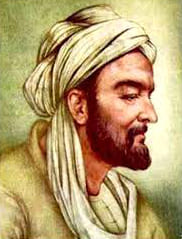Ibn Khaldun | Brief Biography
Ibn Khaldun
Ibn Khaldun was a famous Arabian historian, philosopher, economist, and sociologist who lived from 1332 to 1406. He was born in Tunis, North Africa and is considered one of the greatest minds in Islamic history. He made significant contributions in many fields and is considered as one of the founding fathers of the modern social sciences.
Early Life and Education
Ibn Khaldun was born into a family of influential scholars and politicians. He was educated in Islamic law, theology, mathematics, and astronomy. He also studied under various scholars in North Africa and the Middle East.
Career
Ibn Khaldun’s professional career was marked by both success and setbacks. He served as a statesman and diplomat in various North African cities and was appointed as the Chief Justice of the Maghrib by the sultan of Tunis. However, he was also exiled several times and had to flee from one place to another due to political turmoil and court intrigues.
The Muqaddimah
Ibn Khaldun is best known for his work, “The Muqaddimah” (The Introduction), which is considered his magnum opus. It is a comprehensive treatise on history, philosophy, and the social sciences that was written as an introduction to his Universal History. In The Muqaddimah, Ibn Khaldun advanced several innovative ideas that were ahead of his time. He provided a new approach to the study of history, emphasizing the importance of considering social, economic, and cultural factors in the development of civilizations. He also discussed the concept of asabiyyah, which he defined as social solidarity or group feeling, and its role in the rise and fall of civilizations.
Economic Thought
Ibn Khaldun was also a pioneer in the field of economics. He made significant contributions to the study of economics and provided a unique perspective on the subject. He emphasized the importance of the division of labor and the role of money in the economy. He also discussed the principles of supply and demand and the effects of inflation on the economy.
Sociological Thought
Ibn Khaldun was also a sociologist, and his ideas on the subject had a lasting impact on the field. He believed that human society was composed of various groups and that the relationships between these groups were essential for the development and stability of society. He also discussed the concept of social change, and how it was driven by economic, political, and cultural factors.
Legacy
Ibn Khaldun’s legacy continues to this day. He is considered one of the most important figures in the history of the social sciences and his ideas continue to be studied and discussed. The Muqaddimah is still widely read and is considered a classic in the field of history and social sciences. In recognition of his contributions, UNESCO declared the year 2014 as the “Ibn Khaldun Year” to commemorate the 700th anniversary of his birth.
In conclusion, Ibn Khaldun was a remarkable scholar who made significant contributions to several fields, including history, philosophy, economics, and sociology. He was ahead of his time and his ideas continue to influence the study of the social sciences to this day. 0 0 0.
Ibn Khaldun Brief Biography
N. B. This article originally belongs to the book, ‘Brief Biographies of Ancient Thinkers and Writers‘ by Menonim Menonimus.
Books of Biography by M. Menonimus:
- The World Writers-Brief Biographies
- Introduction to World Writers
- Introduction to World Personalities
- Love of Reputed Persons ..
Additional Searches:











